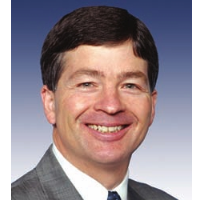Big Bank Lobbyists Help Write Bank Regulation Bills for Congress
 Rep. Jeb Hensarling
Rep. Jeb Hensarling
In a time-honored but utterly corrupt Capitol Hill tradition, lobbyists from Wall Street's biggest banks are dominating the writing of new legislation to weaken the Dodd-Frank financial reform law passed in 2010 to correct some of the abuses that led to the Crash of 2008 and the Great Recession. Even more to the point, the banks are paying for the privilege, donating more than $1.3 million to key members of Congress (70% of it to Republicans) in the first quarter of 2013, according to the Center for Responsive Politics.
Citigroup (2012 revenues: $70.17 billion), for example, got one of its favorite bills to exempt many trades from new regulation through the House Financial Services Committee this month over Treasury Department objections, with 71 of the 80 lines in the bill written by lobbyists for major banks. Two critical paragraphs written by Citigroup were copied word for word, with the sole exception of two words that Congress changed from singular to plural.
Similarly, and as previously reported by AllGov, the big banks have succeeded in preventing tough new laws or regulations of derivatives trades, a complex class of investment contracts that pushed insurance giant AIG (2012 revenues: $65.65 billion) to the brink of collapse in 2008. Not only did the banks manage to get key language written by one of their lobbyists inserted into the bill, they also managed to pressure federal regulators to water down a new derivatives rule released in April.
The connection between large campaign donations and outsized influence in actually writing banking laws has critics calling foul. “The huge machinery of Wall Street information and analysis skews the thinking of Congress,” said Jeff Connaughton, who has worked both as a lobbyist and as a Congressional staff member.
Although Republicans in Congress have been fairly vocal in advocating for the banks and against regulating them, Democrats have been taking the banks' money and voting accordingly as well. On the derivatives issue for example, Rep. Sean Maloney (D-New York), who co-sponsored a bill for Citigroup, was feted by corporate executives and lobbyists at a $2,500-a-head fundraiser just blocks from the Capitol. On the other hand, Rep. Maxine Waters (D-California), who is the ranking Democrat on the House Financial Services Committee, was one of the few Democrats to vote against the bank-lobbyist written bill. She has accepted only $6,000 from the banking industry in 2013, a low for the committee.
The top recipient of cash from the banking and finance industries so far this year is Rep. Jeb Hensarling (R-Texas), chairman of the committee, who has collected $140,400.
-Matt Bewig
To Learn More:
Banks’ Lobbyists Help in Drafting Financial Bills (by Eric Lipton and Ben Protess, New York Times)
Wall Street Shaped Bill Easing Oversight, and Kept Contributions Coming (by Russ Choma, Open Secrets)
5 Biggest Banks Gain another Victory in Control of $700 Trillion Derivatives Market (by Noel Brinkerhoff, AllGov)
Big Banks Dominate Meetings with Regulators; Reform Groups Left in the Waiting Room (by David Wallechinsky and Noel Brinkerhoff, AllGov)
- Top Stories
- Unusual News
- Where is the Money Going?
- Controversies
- U.S. and the World
- Appointments and Resignations
- Latest News
- Trump to Stop Deportations If…
- Trump Denounces World Series
- What If China Invaded the United States?
- Donald Trump Has a Mental Health Problem and It Has a Name
- Trump Goes on Renaming Frenzy






Comments